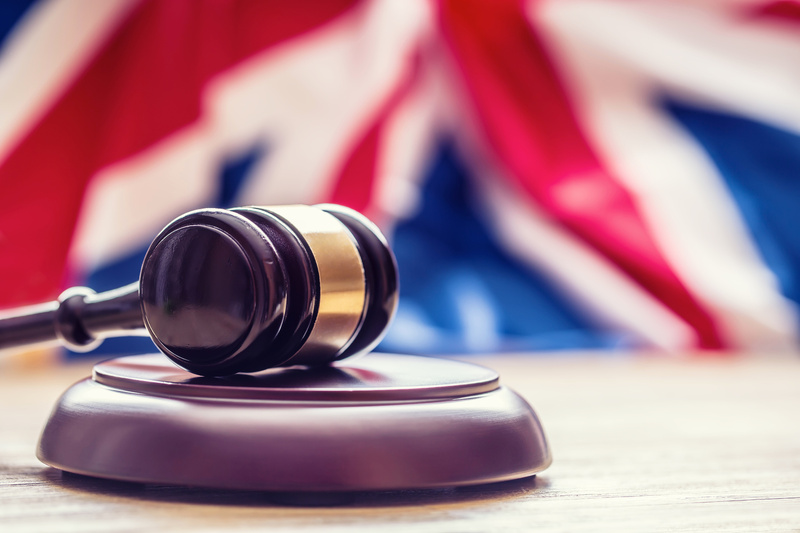Proposed UK Gambling Regulation: £2 Slot Limit for Under-25s

Introduction
The proposed £2 slot limit for under-25s is one of several key proposals in the United Kingdom (UK) Gambling White Paper that aims to prevent and treat gambling-related harm. The regulation is based on research that suggests that young people are more vulnerable to gambling addiction and financial vulnerability.
Gambling laws in the UK have a long and complex history, with the most recent major update being the Gambling Act 2005. The government is now proposing a new Gambling White Paper to address the evolving landscape of the gambling industry.
The goal is to prevent and treat gambling-related harm and ensure that it is conducted in a fair and transparent way. The proposed regulations are a response to over 60 years of research, reviews, and evaluations of the impact of gambling in the UK. The gambling industry is undergoing significant scrutiny, and discussions are underway regarding these proposed UK gambling regulations.
The UK’s Gambling Industry
The main reason that people are taking notice of this proposed White Paper is based on the sheer number of the population it will affect. Of the estimated 67 million people living in the UK, at least 31 million are active gamblers.
In fact, it wouldn’t be a stretch to state that names of popular enterprises such as Paddy Power, Ladbrokes and Bet365 are instantly recognisable and have pull within these households. Gambling has become a huge industry spanning sports betting (with football having a massive fan following), horse racing, and slot machines – being ubiquitous as a past-time or full-on endeavour.
Providing historical context on the UK’s modern gambling industry
Horse racing as the most popular form of betting

Records show that betting on horses forms a large part of UK history. As an example, one of the world’s oldest trophies for horse racing are the Carlisle Bells that date back to 1519. Although, King James I was largely credited with establishing a royal resort when it first peaked in the 17th century, to facilitate this form of gambling.
Before the advent of casinos, horse racing started drawing in large sums of money with Harry Ogden’s 1970s method of declaring the odds for each horse on winning a particular race, while including a profit margin for himself. Even today, sports betting bookmaking has not really moved away from this.
Legal forms of betting before 1960
The economic downturn after World War 1 primed the population to enjoy wagering on horses, greyhounds, and soccer. The parliamentary Labour Party strongly opposed bookmaker-based off-track horse betting in the early 20th century. This time period heralded the popularity of the working class with gambling.
The 1920s saw the inclusion of greyhound racing and football betting. Considered a competitive sport that was lucrative for gambling, there are two forms of greyhound racing, one where they raced around a track and the other named hare coursing (this is now banned in the UK), where a live hare was used to lure the greyhounds to chase after it.
After 1920, with the rise of union influence on the Labour Party, the position changed to one of relative toleration and acceptance, using the slogan, “There ought not to be one law for the rich and another for the poor which is the case today.” The mid-1920s introduction of greyhound racing outraged middle-class reformers and delighted the working class. The working classes now had a political vehicle to protest the laws that were deliberately designed to control and restrict them.
The inauguration of betting shops being open for business
The Betting and Gaming Act of 1960 made the gambling industry a free-for-all, as it made it legal to wager in betting shops, indulge in bingo halls, and casinos. Some statistics from this period show a 154% increase in turnover along with a substantial amount of 13,000 licences for betting shops.
The national lottery rises to prominence
Prior to 1964, there were many attempts to gain traction for a state lottery but this was only fruitful when the Million Lottery was launched to raise wartime funding for the Nine Years’ War. Following the success of this venture, lotteries became a staple of the UK landscape.
Gambling in contemporary Britain
From the 1970s to the 1980s, the new Gambling Act placed more restrictions on gambling. At this stage betting shops are a common sight on high street, bingo halls are the new favoured past time rather than the cinema, and newspapers carry the odds for horse racing and football pools.
Popularity of the lottery and football betting

In 1993, gambling restrictions eased to allow for the rise in popularity of the National Lottery and football wagering. The National Lottery Act of 1993 introduced the framework for gambling on a lottery, and to sweeten the deal, 25% of the lottery profits goes towards good causes as per Parliament’s mandate.
Tony Blair’s era and its effect on the gambling industry
Once this law came into effect in 2005, this made the UK one of the most regulated gambling markets worldwide. The Gambling Act of 2005 established the Gambling Commission and manages all aspects from fair play, to anti-money laundering, and enforces responsible gambling. Licensed gambling enables local authorities to take a stricter stance on protecting vulnerable people from harm or exploitation.
The legacy of this legislation has been far reaching, it enabled all forms of gambling to be advertised as long as it was legal. This then made all such advertising fall under the guidance of The Advertising Standards Authority, which is independently regulated in the UK.
Gambling became a booming industry with fixed-odds betting terminals at £100-a-spin before 2018, not only were people becoming addicted to the high of potentially landing a big jackpot, this was a massively profitable business for the bookies. Even after limits were imposed on how many of these machines you could have in one shop (only four), bookies simply opened more shops to get around the limits set on the maximum stakes. This foreshadowed the current Gambling White Paper that proposes to restrict the maximum stake to £2 for online slot machines as well.
The reform of online gaming
Bookmakers began offering online sites for punters to bet from home and several big-name betting shops changed business management. A known pioneer, Victor Chandler (a bookmaker), moved his entire business to Gibraltar to make the most of its non-taxation policies.
In response to this occurring more frequently, the British government changed its gambling tax policy as players’ bets were previously tax-free if the business was based offshore. The Gambling (Licensing and Advertising) Bill changed online gambling taxation from “place of supply” to “point of consumption” on 1 December 2014. Now, offshore bookies are subject to UK taxation.
The UK Gambling White Paper: Key Proposals
The effects of the proposed Gambling White Paper will be felt by more than just remote casinos, one such regulation is the introduction of a £2 slot limit, that is to be specifically aimed at individuals under the age of 25. In this white paper, we will explore the rationale behind this proposed regulation, its potential impact on the gambling landscape, and the implications for both players and operators.
The UK Gambling White Paper outlines several key proposals to achieve the government’s goal of preventing and treating gambling-related issues. Other proposals include a mandatory affordability check and increased accountability for gambling operators.
£2 Slot limit for under-25s: rationale and implications
The proposed £2 slot limit for under-25s is based on research that suggests that younger people are more likely to develop gambling-related problems, and that this risk increases with the frequency and intensity of gambling. By limiting bets on slot machines, the government hopes to reduce the risk of harm and encourage responsible gambling behaviour throughout.
The proposed regulation is likely to have a significant impact on the gambling industry, especially on the average revenue generated by online slot machines. It is also expected to protect vulnerable individuals from the harms of gambling addiction.
Challenges and Criticisms

The proposed regulation has faced some challenges and criticisms, mainly from gambling operators, who argue that the limit is too restrictive and that it will harm their business. Some critics also argue that the regulation does not go far enough in protecting vulnerable individuals, especially in the online gambling space. Others have suggested that a comprehensive approach that includes other types of gambling and all age groups may be more effective in addressing gambling-related harm.
However, it is crucial to consider the potential impact on players and operators while ensuring a balanced approach that combines regulation with personal responsibility. Although the proposed regulation has faced some challenges and criticisms, it is expected to have a significant impact on the gambling industry and protect vulnerable individuals from the harms of gambling addiction.
International comparisons
The proposed slot limit is not unique, as several other countries, such as Australia and Sweden, have implemented similar regulations. Research suggests that these regulations have been effective in reducing gambling-related harm. The UK can learn from the experiences of these countries and adjust the proposed regulation to fit the UK context.
The need for protective measures
Research has shown that individuals in this age group are more susceptible to developing gambling problems due to factors such as impulsivity and limited experience with financial management. By implementing a stricter and more stringent limit on slot machine bets, policymakers aim to provide a protective measure to mitigate the potential risks associated with excessive gambling among young adults.
Impact on players and operators
The introduction of a £2 slot limit would have profound implications for both players and gambling operators. For players, it could lead to a reduction in excessive gambling and financial losses, promoting responsible gambling habits and overall well-being.
However, it may also limit the entertainment value and freedom of choice for some individuals. Operators, on the other hand, would face challenges in adjusting their business models to comply with the new regulation, potentially resulting in revenue reductions and shifts in customer demographics.
Balancing regulation and personal responsibility
While the proposed £2 slot limit demonstrates a commitment to protecting vulnerable individuals, it is essential to strike a balance between regulation and personal responsibility. Education and awareness campaigns should accompany any regulatory measures, empowering young adults to make informed decisions about their gambling habits.
Additionally, exploring technological advancements such as age verification systems and player tracking tools can complement regulatory efforts by providing effective safeguards against underage gambling and excessive betting.
Conclusion
The proposed UK gambling regulation introducing a £2 slot limit for under-25s seeks to address the vulnerability of younger adults to gambling harm and gambling-related issues. By implementing stricter betting limits, policymakers aim to promote responsible gambling and protect individuals from potential financial and emotional consequences on their detriment.
By implementing a comprehensive framework that includes education, technology, and effective regulation, the UK gambling industry can move towards a safer and more sustainable future. It is essential to stay updated on the development and implementation of the proposed regulations.

